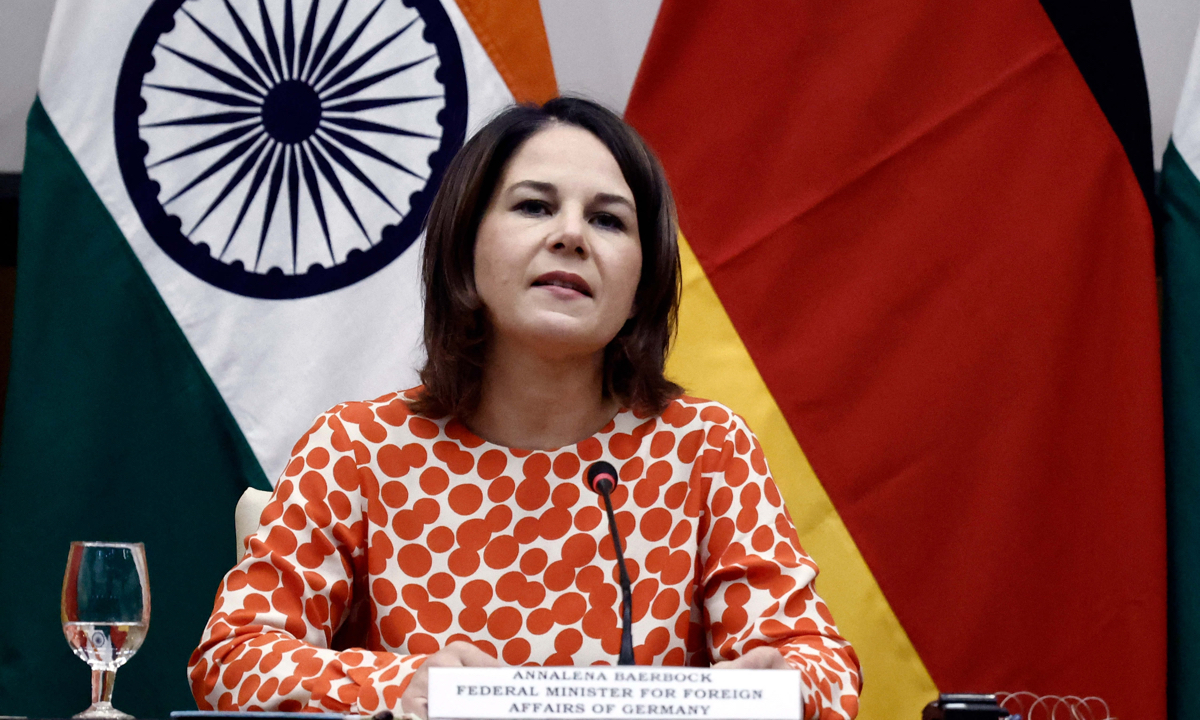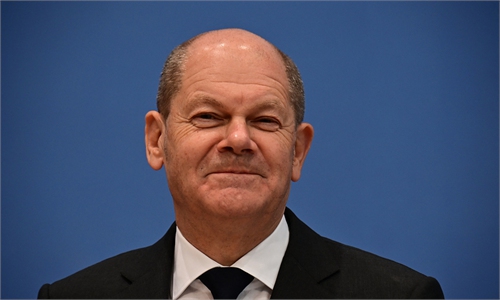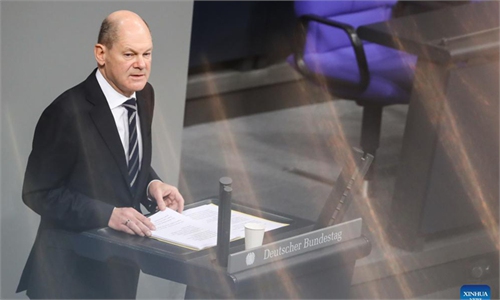
German Foreign Minister Annalena Baerbock. Photo: AFP
German Foreign Minister Annalena Baerbock made a two-day visit to India earlier this week. She has acknowledged that India has assumed global responsibility with the G20 Presidency – and also that of the UN Security Council for the month of December – at a "difficult moment." In addition, Baerbock announced that Berlin has decided to engage in the Indo-Pacific Oceans Initiative unveiled by Indian Prime Minister Narendra Modi, and they also acknowledged the Policy Guidelines for the Indo-Pacific of the German Federal Government.This time, Baerbock took the initiative to talk about Germany’s Indo-Pacific strategy, which is an important manifestation of Germany's multipolar advocacy. Since the Russia-Ukraine conflict, Western countries, including Germany, have felt that the international order dominated by the US is facing serious problems. The US has become more and more incapable of handling international relations. Therefore, Germany has gradually begun to look to the East and has strengthened relations with China, India, and other Eastern countries.
Sun Keqin, a research fellow at the China Institutes of Contemporary International Relations, pointed out that, previously, Germany's policies toward Asia had been centered on China, while it never forgot to pay attention to India, since India has a large, young population and huge market potential. India overtook the UK as the world's fifth-largest economy this year. Therefore, Germany pays increasing attention to the Indian market. In addition, Berlin does not want to put all its eggs in one basket, so it has to place some diplomatic focus on more countries, including India.
The economy of the Asia-Pacific region continues to perform relatively well. From the perspective of Germany, it is reasonable to focus on the Indo-Pacific region. However, it still needs to be pointed out that any country's Indo-Pacific strategy should not regard China as an enemy or a rival. In addition, it should not try to drive a wedge into existing relations among countries in the region or destroy the foundations and consensus that have been formed on regional issues such as economy, trade, and security. Otherwise, not only China, but also other regional countries will oppose it, Cui Hongjian, director of the Department of European Studies at the China Institute of International Studies, told the Global Times.
Furthermore, while Europe has always positioned itself as a security provider, its own security issues remain unresolved, and the Russia-Ukraine conflict continues. If it really wants to contribute to the security of Asia, it must first set an example for itself. Only when there are no conflicts and confrontations at its doorstep can it be more convincing to others.
In addition to seeking to implement cooperation in the Indo-Pacific region, one of the purposes of Baerbock’s trip is to persuade India to join the price cap on Russian oil. However, S. Jaishankar, external affairs minister of India, said that India will prioritize its own energy needs and continue to purchase oil from Russia. It proves that cooperation between Germany and India has an upper limit, and some of the "hopes" of Germany and the groups behind it may not come true.
On the one hand, India and Russia have close cooperation in oil and many other fields, and it is unrealistic to give that up easily. They have had a very special relationship for a long time. During the 22nd meeting of the Council of Heads of State of the Shanghai Cooperation Organization, Modi reaffirmed the historic importance of India-Russia relations. On the other hand, India has its own strategic autonomy, which makes it impossible for the West to get India to take sides completely.
India is hoping to reduce influence from the US as much as possible, and to achieve a new balance under the current volatile and chaotic world situation. India is pursuing a new multi-alignment, said Lan Jianxue, director of the Department for Asia-Pacific Studies at the China Institute of International Studies.
Germany and Europe should know that in many aspects, including the understanding of the Ukraine crisis and the perception of development and security, there are still many differences between Germany and India. Germany and Europe should not impose their position on others and should not think that the truth is in their own hands. What's more, Europe may still need to pay more attention to its own problems. If the relationship between Europe and Russia can be handled well, it will be more convincing when lobbying elsewhere.
The author is a reporter with the Global Times. opinion@globaltimes.com.cn


